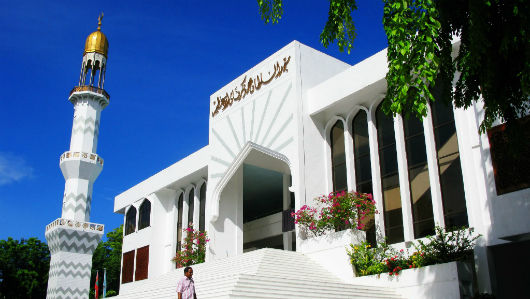Apostates, jihadists and extremists face tough new punishments
The policy paper, published by the Ministry of Islamic Affairs, seeks to address issues around apostasy, extremism and freedom of speech in a religious context.

11 Apr 2018, 09:00
People who leave Islam face expulsion from Maldivian society, financial penalties, and even a prison sentence under new government policies on freedom of religion.
The policy paper, published Tuesday by the Ministry of Islamic Affairs, seeks to address issues around apostasy, extremism and freedom of speech in a religious context.
It said that some of the biggest challenges to the country today included apostasy, openly mocking, demeaning or undermining the faith, going to war in the name of Islam and murdering in the name of religion.
Little is known about the numbers of Maldivians leaving Islam but, in an unprecedented case in 2010, self-declared apostate Mohamed Nazim publicly repented and reverted back to Islam after government counselling when religious groups called for his death.
Become a member
Get full access to our archive and personalise your experience.
Already a member?
Discussion
No comments yet. Be the first to share your thoughts!
No comments yet. Be the first to join the conversation!
Join the Conversation
Sign in to share your thoughts under an alias and take part in the discussion. Independent journalism thrives on open, respectful debate — your voice matters.




